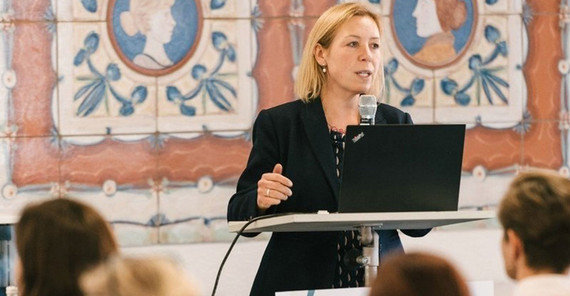Since then, a lot has happened: Thanks to the funding from the Brandenburg Ministry of Science, the program has been expanded over the years and repeatedly relaunched, now also for refugees from Ukraine. A dedicated team is now running the program, which Miriam Vock believes should be made permanent, as the need for qualified teachers with different cultural and linguistic backgrounds will only increase in light of increasing migration. It is still a problem that teachers from abroad lack the second subject required in Germany in order to be fully recognized and permanently employed. The Refugee Teachers Program has now also set up subject-specific studies for this. Prof. Vock, who is now looking much more closely at how teachers are trained in other countries, would like to see a change in thinking. Almost nowhere else in the world is it common to insist on a second subject. In view of the teacher shortage in Germany, one can’t really afford it here, either.
Prof. Vock has written and lectured extensively about her experiences. Other universities took up the Potsdam initiative and set up similar programs, for example in Cologne, Bochum, and Bielefeld. Even though she does not explicitly conduct research in this field, the Refugee Teachers Program has broadened her perspective and shown her what can be achieved in a very short span of time if all act in concert. The researcher recalls how the working group that was set up searched for solutions across all university structures quickly and pragmatically and how their work was characterized by a real sense of community and a great welcoming culture. An experience that touched her just as much as the personal encounters with the refugees, many of whom were severely traumatized, separated from family members, whose fate remained uncertain. Long journeys, overcrowded accommodation, no money to buy food – none of this stopped them from completing the intensive language and education theory courses. Miriam Vock, who usually sees herself more as an observer, analyzing and describing processes, took on the role of an actor and embraced the responsibility. In doing so, she left many other tasks unfinished. And yet she gained so much in the process.
The Researcher
Prof. Dr. Miriam Vock has been Professor of Research on Teaching and Educational Interventions at the University of Potsdam since 2011.
Email: miriam.vockuuni-potsdampde
This text was published in the university magazine Portal Wissen - Eins 2024 „Bildung:digital“ (PDF).

